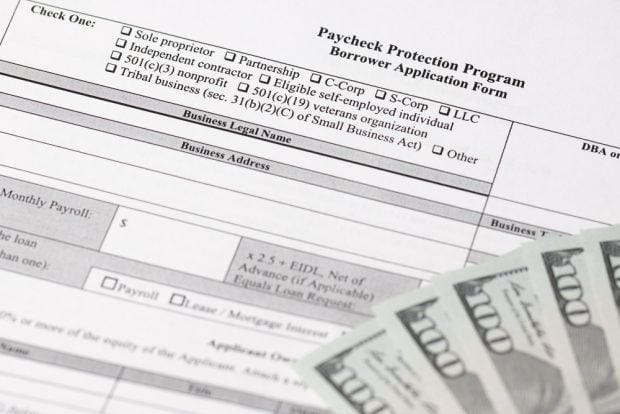 Source: Shutterstock.
Source: Shutterstock.
The Small Business Administration said Tuesday that it has stopped accepting Paycheck Protection Program loan guarantee applications, which provided more than $798 billion to small businesses during the pandemic.
SBA Administrator Isabella Casillas Guzman said Tuesday in a statement that the PPP provided over 8.5 million small businesses and nonprofits with "the lifeline they needed to survive during a once-in-generation economic crisis."
Recommended For You
Guzman noted, however, that "millions of underserved businesses — particularly our smallest businesses and those owned by women and people of color — were left out of early rounds of relief," but that the SBA rectified these inequities.
"In 2021, 96% of PPP loans went to small businesses with fewer than 20 employees," Guzman said. "Moving forward, we will continue to prioritize equity in all SBA's programs and services."
The program has supported "the smallest of small businesses" with 32% of the loans going to low-and-moderate income communities, SBA said.
"The PPP was a consequential program," Leon LaBrecque, chief growth officer at Sequoia Financial Group in Troy, Mich., told ThinkAdvisor Wednesday in an email. "Thousands of businesses benefited by the program, but the execution was problematic. Now that the program is closed, I have seen many businesses who didn't use the PPP and should have. The businesses who didn't use it range from simple procrastinators, to skeptics, to people who viewed the program as a loan versus a forgivable grant."
The program, LaBrecque continued, "came out quickly, had a lot of problems in interpretations (I think 44) which created some significant misunderstandings. My clients who used the PPP are appreciative and found it very beneficial."
SBA also said that community financial institutions "played a pivotal role" in 2021 PPP lending to underserved communities during this period, providing 1.5 million loans totaling $30 billion, according to SBA.
PPP loans in 2021 averaged $42,000, another indicator of targeted relief to the smallest small businesses, SBA said.
© Touchpoint Markets, All Rights Reserved. Request academic re-use from www.copyright.com. All other uses, submit a request to [email protected]. For more inforrmation visit Asset & Logo Licensing.






